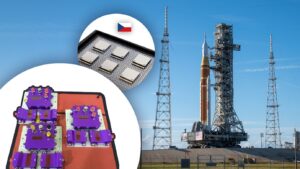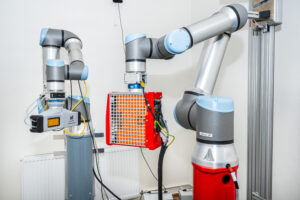ADVACAM is currently working in partnership with Multi-Robot Systems laboratory to develop a radiation-tracking quadcopter at the Czech Technical University in Prague.


The aircraft to be able to autonomously seek out various types of radiation in settings such as disaster sites, dumping sites or nuclear power plants. When problematic radiation is detected, the drone will be capable of determining the direction in which the radioactive particles are traveling, thus allowing it to quickly follow them back to their source.
Additionally, it will be able to navigate indoor environments – where GPS doesn’t work – employing collision-avoidance sensors to keep from running into obstacles.
Using drones is not only safer, but it is also more affordable and “up to 100 times more efficient” than utilising human ground crews. A working prototype should be ready by autumn (Northern Hemisphere), with an international commercial roll-out taking place in about a year and a half. The aircraft may be commercially available in around 12 to 18 months.
Source article available here


